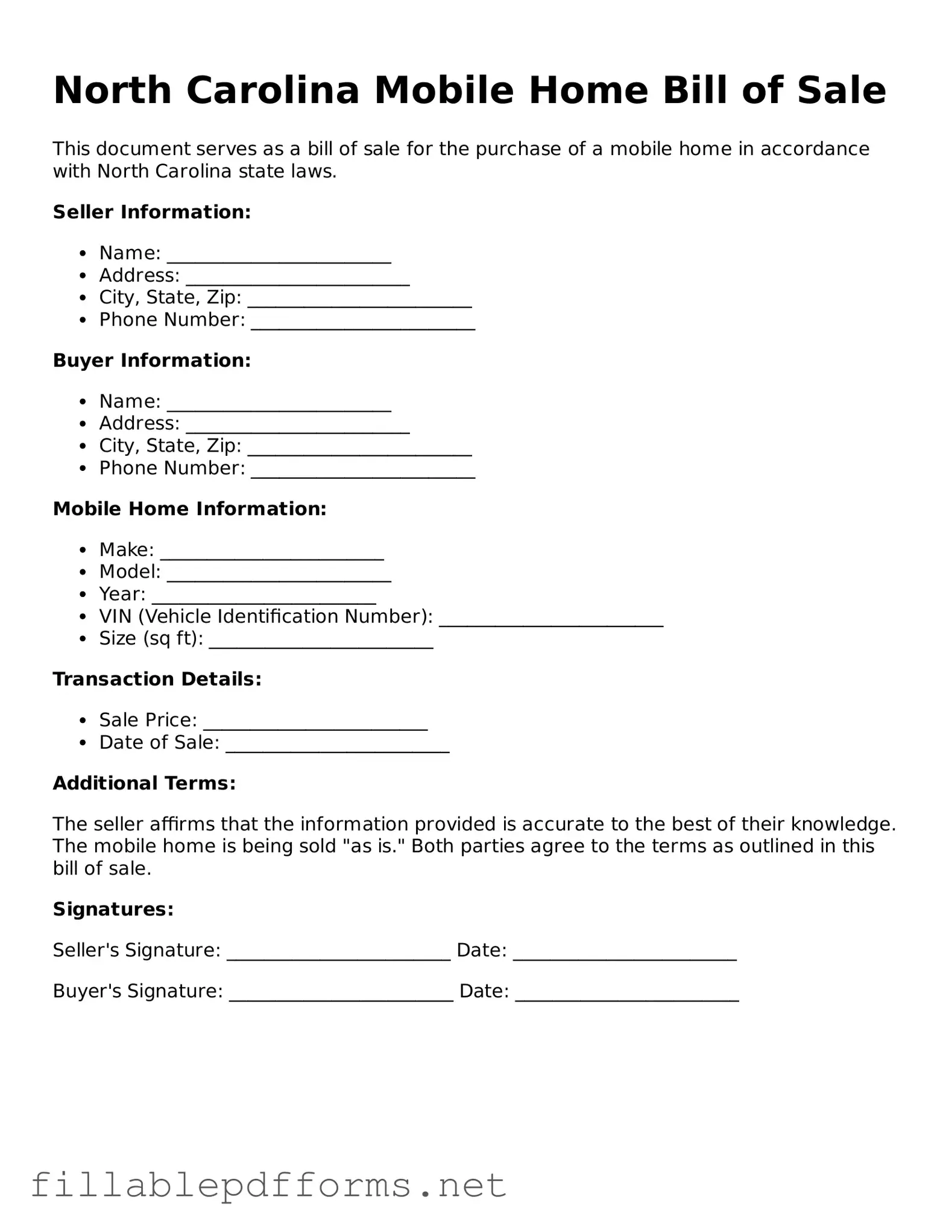Attorney-Verified Mobile Home Bill of Sale Form for North Carolina State
The North Carolina Mobile Home Bill of Sale is a legal document that records the transfer of ownership of a mobile home from one party to another. This form is essential for ensuring that both the seller and buyer have a clear understanding of the transaction, including details about the mobile home and the terms of sale. Completing this document accurately helps protect the rights of both parties involved in the sale.
Launch Editor Here

Attorney-Verified Mobile Home Bill of Sale Form for North Carolina State
Launch Editor Here

Launch Editor Here
or
▼ Mobile Home Bill of Sale PDF
Almost there — finish the form
Complete Mobile Home Bill of Sale online fast — no printing, no scanning.